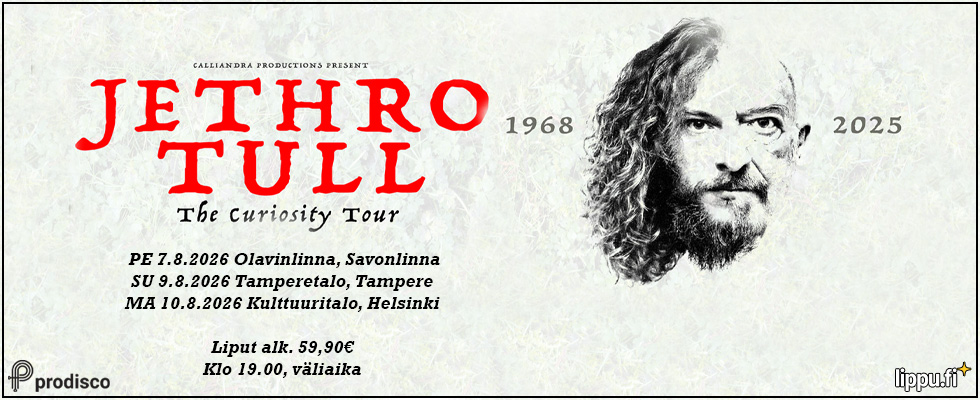Entinen Black Sabbath -manageri vastaa Sharon Osbournelle: “Hyvin epäoikeudenmukaisia väitteitä”
Black Sabbathin alkuvuosien managerina toiminut Jim Simpson on julkaissut laajan vastineen Sharon Osbournen tuoreisiin väitteisiin. Osbourne käsitteli kiistaa bändin varhaisten Earth-aikojen demojen julkaisemisesta viimeisimmän The Osbournes –podcast-jakson yhteydessä, jossa perhe muisteli Ozzyn kuoleman jälkeisiä tapahtumia.
Osbournen mukaan Simpson on yrittänyt julkaista varhaisäänitteitä ilman bändin tai perheen suostumusta. Nyt Simpson kutsuu väitteitä “epätarkoiksi ja epäoikeudenmukaisiksi”.
Simpson: “Demon omistusoikeus on minun – maksoin studion”
Sharon Osbourne kyseenalaisti podcastissa Simpsonin väitteen siitä, että hän olisi maksanut Earthin studioäänitykset 1960-luvun lopussa. Simpson torppaa väitteen suorilta käsin.
“On hyvin epäoikeudenmukaista esittää tällaisia väitteitä. Maksoin Earthin äänitykset. Olin jo tuolloin tehnyt hitin Locomotiven kanssa ja työskennellyt suurten levy-yhtiöiden kuten EMI Harvestin ja Parlophonen kanssa. Sharon ei voi tietää, mitä varaa minulla oli silloin.”
Simpsonin mukaan Earth-demot – jotka hän aikoo julkaista nimellä ”Earth: The Legendary Lost Tapes” – ovat hänen laillisesti omistamiaan.
“Bändillä oli mahdollisuus osallistua – sain takaisin vain uhkaavia viestejä”
Osbournen mukaan Simpson olisi odottanut vuosikymmeniä tekijänoikeuksien raukeamista ennen kuin yritti julkaista demot. Simpson kiistää tämänkin.
“Lähestyin bändin jäseniä 24. syyskuuta 2024. He eivät halunneet olla mukana ja sain kaksi hyvin uhkaavaa sähköpostia Sharonilta. Mutta mahdollisuus oli tarjolla.”
Simpson väittää myös, että väite voittojen pitämisestä itsellään on väärä.
“Halusin, että kaikki bändin jäsenet saisivat normaalit rojaltit. Mikäli he eivät halua niitä, olin sopinut Birminghamin St Basils -hyväntekeväisyysjärjestön kanssa, että rahat lahjoitettaisiin heille.”
Simpson kiistää myös Osbournen väitteet Big Bear Recordsin “pienuudesta”
Sharon kutsui Simpsonin levy-yhtiötä “pieneksi”. Simpson vastaa:
“Big Bear Records on Ison-Britannian vanhin riippumaton levy-yhtiö, jonka perustin 1968. Emme ole mikään pikku yhtiö. Uudelleenjulkaisun kumppanina toimii Trapeze Music & Entertainment, jolla on valtava katalogi – Johnny Cashista Duke Ellingtoniin.”
Kuka vei rahat? Simpson: “Sabbathin talous romahti vasta sen jälkeen, kun he rikkoivat sopimuksen”
Sharon Osbourne väitti podcastissa, että Sabbath ei saanut penniäkään uransa alkuvuosina. Simpson pitää tätä vääränä.
“Minun aikanani heille maksettiin oikein. Olin managerina, kun julkaistiin Black Sabbath (1970) ja Paranoid (1970), jotka molemmat myivät maailmanlaajuisesti ja nostivat bändin huipulle. Ongelmat alkoivat vasta, kun he rikkoivat sopimuksensa kanssani.”
Voiko kiista ratketa?
Simpson sanoo olevansa edelleen valmis keskustelemaan.
“Ehdotin Sharonille tapaamista Birminghamissa heinäkuussa 2025. Olen yhä halukas sopimaan asian.”
”Earth: The Legendary Lost Tapes” sisältää Simpsonin mukaan mm. blues-covereita (“Blue Suede Shoes”, “Evenin’”, “Wee Wee Baby”), varhaisia versioita kappaleista “Wicked World” ja “Warning”, instrumentaaliteoksia sekä materiaalia, jota hän kutsuu “raskaan musiikin alkusoitoksi”.
“Jos tämä albumi saadaan julkaistua, se on valtava lahja musiikkihistorialle.”
Voit lukea Jim Simpsonin tiedotteen englanniksi kokonaisuudessaan tästä:
Jim Simpson, the first manager of Black Sabbath, rejects the claims recently made by Sharon Osbourne regarding his plans to release the recordings made by Ozzy Osbourne, Tony Iommi, Geezer Butler and Bill Ward in 1969, when the band was still known as Earth. Simpson explains that the recordings were funded by him at the time and therefore legally belong to him. He states that Sharon Osbourne’s suggestions that he could not have afforded to pay for the studio sessions are untrue, pointing out that he was already an established figure in the music industry with a hit single, record deals and a long history of financing studio work for the bands he managed.
Simpson denies the accusation that he deliberately waited for copyrights to expire before attempting to release the material. He says that after Black Sabbath left his management contract in 1970, he devoted his career to rediscovering overlooked blues musicians, touring them across the UK and Europe, and later became heavily involved in jazz, founding the Birmingham Jazz & Blues Festival and publishing The Jazz Rag. These commitments, combined with running Big Bear Records and producing more than 80 albums, meant that although he always intended to release the Earth recordings, the timing was delayed by the demands of decades of other work. He states that he approached the surviving members of Black Sabbath about the material in September 2024, giving them the opportunity to participate, but they declined, and Sharon Osbourne responded with threats of legal action.
Simpson dismisses Sharon Osbourne’s claim that he intends to keep all profits for himself, stating that he planned for all band members to receive royalties in the usual way, and that he is still willing to do so. He also rejects her statement that he lied about donating proceeds to charity, explaining that he has documented correspondence with St Basils, a charity for homeless young people in Birmingham, confirming that the organisation would receive the money should the band refuse their royalties.
He challenges Sharon Osbourne’s characterization of Big Bear Records as a “little” label, emphasising that it is the UK’s longest-running independent record company, founded in 1968, and is currently being relaunched in partnership with Trapeze Music & Entertainment Ltd, a well-established distributor with a catalogue that includes Johnny Cash, Buddy Holly, Marlene Dietrich, Count Basie, Duke Ellington and many others. Simpson also disputes Sharon’s suggestion that he had a negligible role in the early success of Black Sabbath, noting that under his management the band changed their name from Earth to Black Sabbath, released their first two landmark albums, toured widely and achieved commercial success, receiving proper payments during the period he represented them.
Despite the public dispute, Simpson remains open to resolving the issue and has previously suggested meeting with Sharon Osbourne to discuss the release. He believes that the recordings constitute an essential part of music history, capturing the formative period of musicians who would go on to define the sound of heavy metal. The material includes blues covers, early experiments and rare versions of songs that document the group’s development before they became Black Sabbath. Simpson maintains that releasing the collection, Earth: The Legendary Lost Tapes, would be of significant cultural value and a meaningful contribution to fans and historians interested in the origins of one of rock music’s most influential bands.




